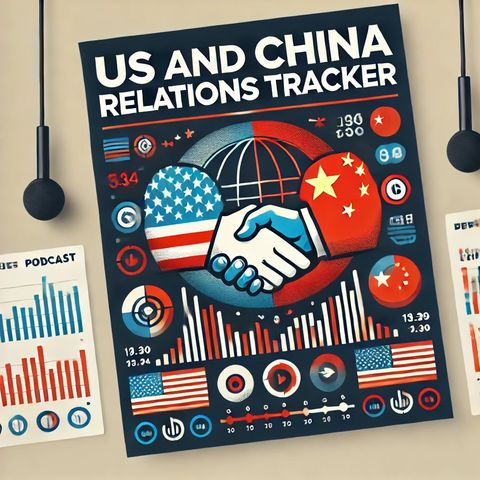"Navigating the US-China Rivalry: Balancing Security and Development for Global Prosperity"

Download and listen anywhere
Download your favorite episodes and enjoy them, wherever you are! Sign up or log in now to access offline listening.
"Navigating the US-China Rivalry: Balancing Security and Development for Global Prosperity"
This is an automatically generated transcript. Please note that complete accuracy is not guaranteed.
Description
In the intricate landscape of international relations, the dynamic between the United States and China remains one of the most complex and pivotal. Within this context, Zhang Ming, an esteemed...
show moreZhang's concerns are particularly pertinent as both nations are major players on the global stage, with their rivalry influencing economic policies and security strategies worldwide. His critique is rooted in the observation that a disproportionate focus on security can lead to what he terms a "trap." This trap, he suggests, arises when countries prioritize defense mechanisms over economic progress, potentially stifling growth and innovation.
The US-China relationship has always been multifaceted, characterized by cooperation and competition. In areas like trade, technology, and military presence, the two giants are frequently at odds, yet their economies are deeply intertwined. This interdependence creates a delicate balance that needs careful management to avoid escalation into conflict.
Zhang's argument highlights a critical juncture in this relationship. He advocates for policies that do not overly constrict economic development in the name of security. Historically, periods of heightened tension have sometimes led to protectionist measures and increased military expenditure, which can detract from other areas of growth. According to Zhang, a balanced approach encourages a healthier rivalry, where both countries can thrive while managing their differences responsibly.
This perspective is particularly relevant in discussions about technological advancements and cybersecurity, which have often been flashpoints in US-China relations. Increasing cyber threats and competition in tech domains like artificial intelligence and 5G networks have led to heightened security concerns. However, Zhang suggests that these should not overshadow the collaborative potential in scientific research and technological development. By fostering cooperation in these areas, both countries can benefit from shared innovations, ultimately strengthening global progress.
Furthermore, Zhang’s insights echo a broader call within the international community for a more harmonious global order. The balance between security and development is not only a bilateral issue but also a global one. Nations around the world can learn from this approach, seeking strategies that fortify national security without undermining economic prospects.
In conclusion, Zhang Ming's call for balanced policies in the US-China rivalry is a timely reminder of the need to harmonize security interests with developmental goals. As these two global powers continue to shape the international landscape, a nuanced approach that fosters growth while addressing legitimate security concerns could pave the way for a more stable and prosperous future.
Information
| Author | QP-4 |
| Organization | William Corbin |
| Website | - |
| Tags |
Copyright 2024 - Spreaker Inc. an iHeartMedia Company
